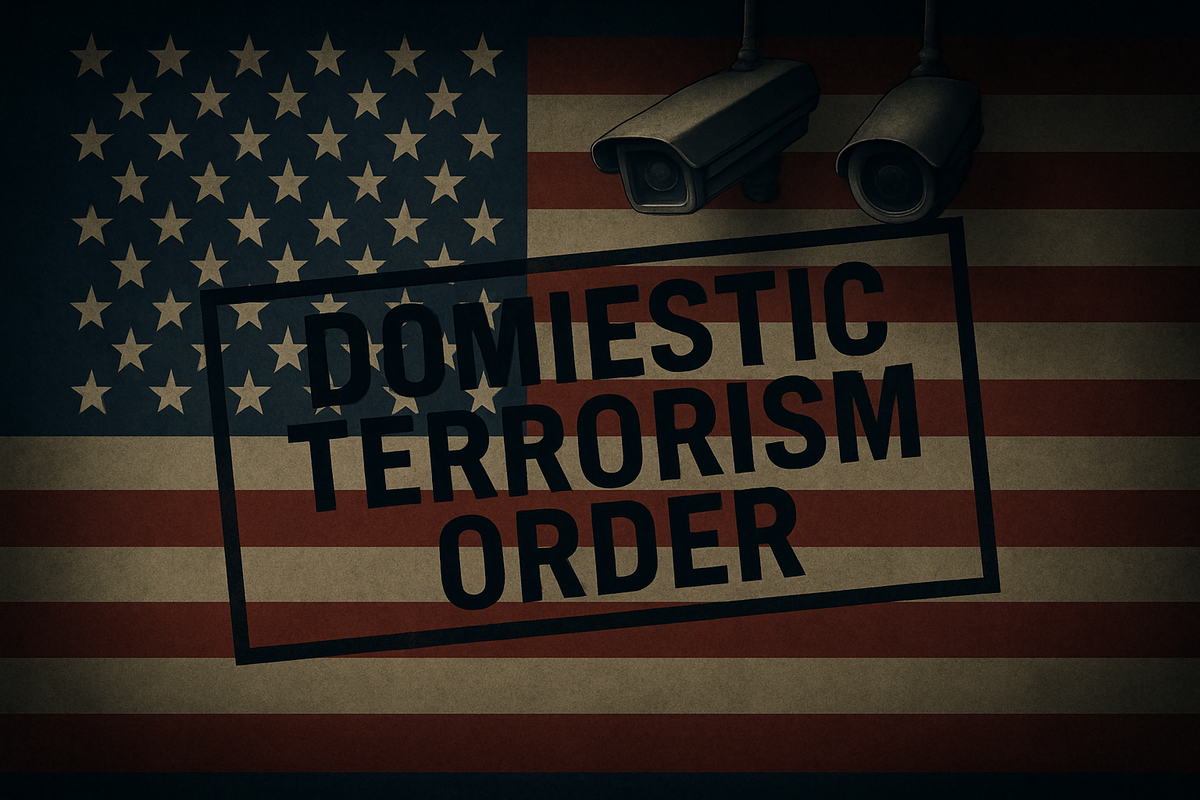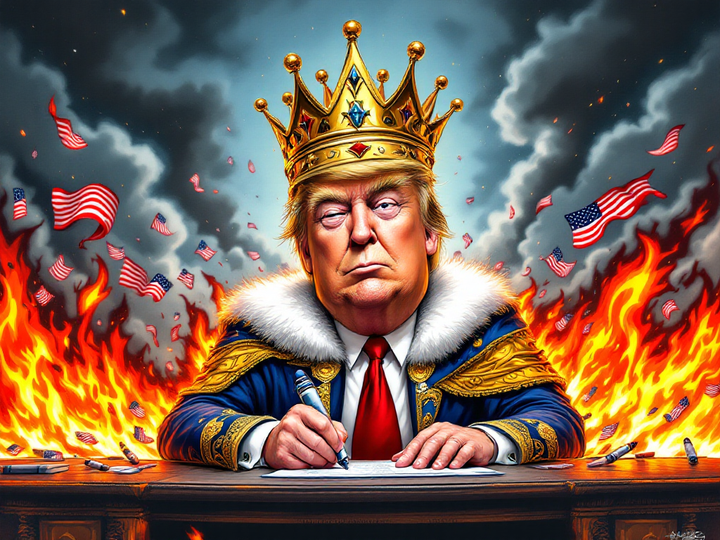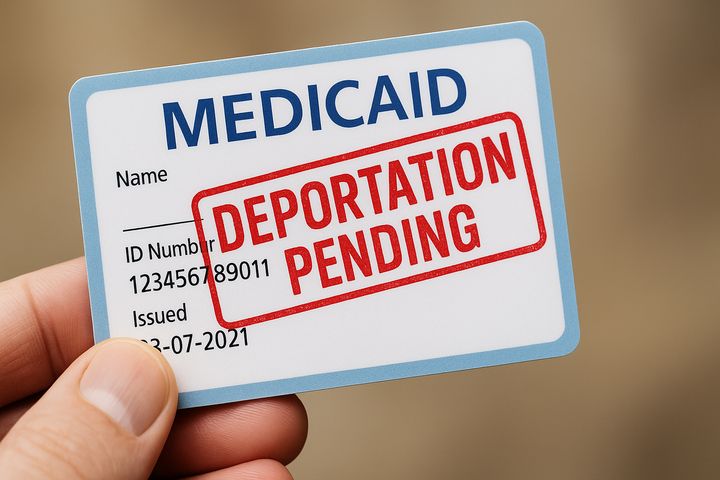Trump Signs Sweeping Domestic Terrorism Executive Order
The White House has issued a sweeping new executive order targeting so-called “domestic terrorism,” but legal experts warn its broad definitions and investigative powers could threaten free speech, political activism, and constitutional rights in the name of national security.

Breaking News Explainer
By the GOPocalypse Now Editorial Team
President Donald J. Trump on Thursday signed a sweeping executive order directing federal law enforcement and intelligence agencies to aggressively investigate, prosecute, and dismantle what the White House calls “domestic terrorism networks” — a move civil liberties advocates warn could dramatically expand government power over political dissent.
The order, titled “Domestic Terrorism and Organized Political Violence,” frames recent incidents of political violence — including assassinations, riots, and attacks on law enforcement — as part of a coordinated campaign aimed at “silencing opposing speech” and “preventing the functioning of a democratic society.”
“This political violence is not a series of isolated incidents and does not emerge organically,” the order states. “Instead, it is a culmination of sophisticated, organized campaigns… designed to silence opposing speech, limit political activity, change or direct policy outcomes, and prevent the functioning of a democratic society.”
A New “National Strategy” to Investigate Political Movements
Under the new directive, the FBI-led National Joint Terrorism Task Force (JTTF) will lead a “comprehensive national strategy” to investigate not just individuals committing acts of violence, but also the broader networks, funders, and organizations behind them.
“The JTTFs shall investigate potential Federal crimes relating to acts of recruiting or radicalizing persons for the purpose of political violence, terrorism, or conspiracy against rights,” the order states.
The order goes further than past anti-terrorism directives by explicitly targeting “institutional and individual funders” and “non-governmental organizations” that support movements the administration deems violent. It also authorizes investigations into American citizens with foreign ties if their activities are suspected of violating lobbying or money-laundering laws.
The Treasury Department is directed to “trace illicit funding streams” and compel financial institutions to flag suspicious activity, while the IRS must ensure that “no tax-exempt entities are directly or indirectly financing political violence or domestic terrorism.”
“Domestic Terrorism” and Ideology
While the order cites a rise in violent incidents — including the assassination of conservative activist Charlie Kirk and attacks on ICE facilities — it repeatedly focuses on so-called “anti-fascist” movements and ideologies.
“There are common recurrent motivations… under the umbrella of self-described ‘anti-fascism,’” the order claims. “Common threads… include anti-Americanism, anti-capitalism, and anti-Christianity; support for the overthrow of the United States Government… and hostility towards those who hold traditional American views.”
Critics argue that such language dangerously blurs the line between violent criminal acts and constitutionally protected political activity.
“This language is alarmingly vague,” said one civil liberties attorney. “Opposing capitalism or supporting immigration reform is not terrorism — but this order suggests those beliefs alone could put people or groups under surveillance.”
Terrorist Labeling and Enhanced Penalties
The order authorizes the Attorney General to recommend that any group whose members engage in qualifying acts be designated as a “domestic terrorist organization” — a designation that can trigger expanded surveillance, asset seizure, and enhanced criminal penalties.
It also reclassifies a wide range of behaviors — including online doxing, swatting, civil disorder, and property destruction — as potential terrorism-related offenses if they are politically motivated.
Critics Warn of “Authoritarian Drift”
Civil liberties organizations and legal scholars say the executive order’s sweeping definitions and broad investigatory powers represent a significant shift toward government policing of ideology.
“This is a blueprint for weaponizing federal law enforcement against political opponents,” said a constitutional law professor at Georgetown University. “It treats ideology as evidence of terrorism and allows the government to surveil, prosecute, and dismantle organizations based on what they believe.”
The order also includes language suggesting that opposition to certain policies — such as immigration enforcement or traditional religious norms — could serve as indicators of radicalization.
🧰 Know Your Rights: What You Should Know
📜 Speech is still protected. The First Amendment protects even unpopular or radical political speech — unless it directly incites imminent violence.
🔍 Membership isn’t a crime. Belonging to a group with controversial views is not illegal unless you actively participate in criminal acts.
💸 Financial donations can trigger scrutiny. Donations to nonprofits or activist groups may be investigated if those groups are labeled as supporting terrorism. Keep records and know the organizations you support.
👤 You have the right to remain silent. If approached by federal agents, you are not required to answer questions without an attorney present.
📑 Stay informed. Follow updates from civil liberties organizations like the ACLU, Brennan Center for Justice, and EFF for resources and legal support.



Comments ()